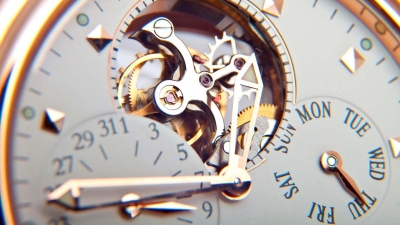- Trips
- Tour Calendar
- About Our Tours
- Plan a Trip
- Book a Trip
- About Us
- Contact Us



When it comes time for shopping on your Switzerland vacation you will find watches for sale everywhere! A Swiss watch has a reputation of superior quality that has been earned over the years and includes both traditional manufacturing and advanced technology. Watch making began in the late 16th century when there was a ban on wearing jewelry by Jean Calvin, whose authority extended into all aspects of Swiss life. Jewelers and goldsmiths turned to the art of making watches to keep time while being fashionable. Switzerland has been known as the center of watch industry for over 400 years and continues to keep its leadership in the world watch market in terms of value. Ultimately, Swiss watches are well known for precision, dependability, quality, and style; therefore people worldwide prefer to purchase a Swiss-made watch over any other type of watch.
Swiss watches are usually defined as watches that are totally manufactured in Switzerland or watches that have a Swiss movement. According to the Federation of the Swiss Watch Industry (FH), a watch is considered Swiss, according to Swiss law if, 1) its movement is Swiss and, 2) its movement is cased up in Switzerland and; 3) the manufacturer carries out the final inspection in Switzerland. The Swiss government requires by law that the Swiss share of production costs must be at least 60 percent for a product to be labeled "Swiss Made".
Only when it is Swiss, may a Swiss watch carry the indications "Swiss made" or "Swiss", or any other expression containing the word "Swiss" or its translation, on the outside. A watch is considered to be Swiss Made if the watch was made from Swiss parts and assembled in a Swiss factory.
Even US watchmakers envy the prestige of a "Swiss Made" label. In 2014, the US based watchmaker, Fossil, known for affordable timepieces sold in malls throughout the US, opened a design and development center in the watchmaking town of Biel, Switzerland, across the street from a Rolex factory. Fossil plans to make as many as a half-million watches a year in Switzerland bearing the coveted "Swiss Made" label. The move marks Fossil's entry into the luxury market with watches that carry the cache of Switzerland's tradition of fine watches. Fossil's move will put them in direct competition with Swatch, the world's largest watchmaker.

There are a two main ways a Swiss watch operates. The first is by battery, which is known as a battery-powered quartz watch. Next is a mechanical watch, otherwise known as a hand-wound watch and is more complicated. It is made up of about one hundred and thirty small intricate parts, which are assembled by hand and you will pay more for this type of watch. These are also among some of the most complex in the world. There are three types of Swiss watches to choose from. 1. Analogue: classic and more formal 2. Digital: more casual, and 3. a combination of the two, known as an analogue/digital watch which is more utilitarian. By understanding the types of Swiss watches available before shopping one can be better prepared to know what they are looking for.
When deciding to buy a Swiss watch, it is important to keep in mind that there are multiple designs and features. The perfect watch for a person is a matter of preference and Swiss watches can range in price from 50 CHF into the thousands and the average price is 739 CHF, so make sure you know what your budget is before shopping. Swiss watches are well manufactured, reputable, highly desirable and abundant in Switzerland.
You'll have opportunities to shop for quality Swiss watches on nearly every Switzerland tour, including Alpenwild's Scenic Alps by Rail.